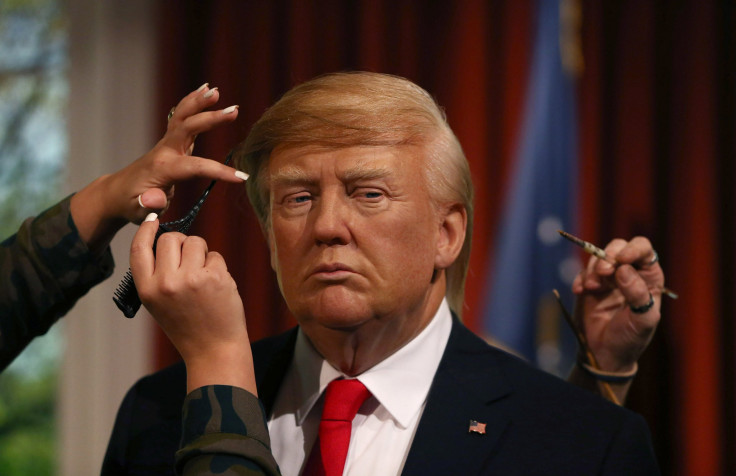Trump Takes Drugs For His Hair? President's Physician Claims He Takes Medication To Stimulate Hair Growth

President Donald Trump's physician, Dr. Harold N. Bornstein, claims the 70-year-old takes several medications that include medicines to control rosacea, a common skin problem, and statin, a lipid-lowering medication for elevated blood cholesterol. Trump also uses a prostate-related drug to promote hair growth. Bornstein said this in a series of recent interviews with the New York Times.
Bornstein explained Trump takes a small dose of finasteride which is sold as Propecia and it is believed to lower prostate specific antigen (PSA) levels and is used for treating male-pattern hair loss. Bornstein said he also uses it for his own hair and praised the drug.
"He has all his hair... I have all my hair," he said.
At 70, Trump is the oldest president in the history of the country. But his physician assured the newspaper that he was in good health. He also disclosed that in order to reduce the risk of heart attacks, Trump takes baby aspirin and that his medication was "exactly up to date."
In two letters he wrote about Trump's health, Bornstein mentioned Trump's PSA level was 0.15. In a letter revealed in December 2015, he wrote: "If elected, Mr. Trump, I can state unequivocally, will be the healthiest individual ever elected to the presidency."
Bornstein's other letter, which became public in September 2016, said Trump is 6-foot-3, weighs 236 pounds, has a normal blood pressure of 116/70 and takes a drug called rosuvastatin (marketed as Crestor) to lower cholesterol and other lipids.
"I am probably the only person in the world who has every phone number for him and all the wives," Bornstein told New York Times. He also mentioned that he had cared for Trump's first and third wives, and occasionally for the second.
The White House did not comment on the matter, refusing to clarify if Bornstein was still Trump's doctor or whether the information obtained by the New York Times was accurate.
© Copyright IBTimes 2025. All rights reserved.






















